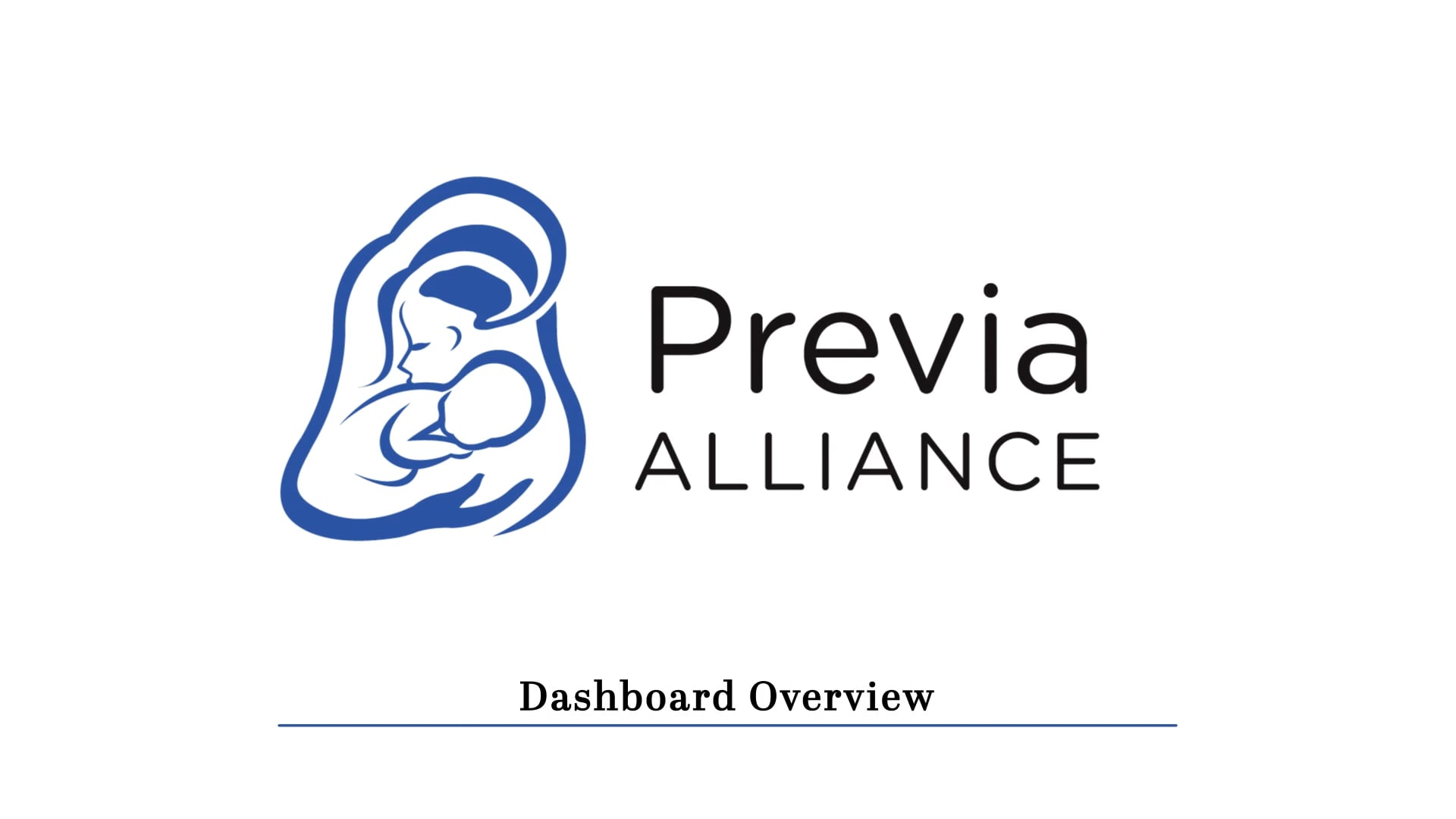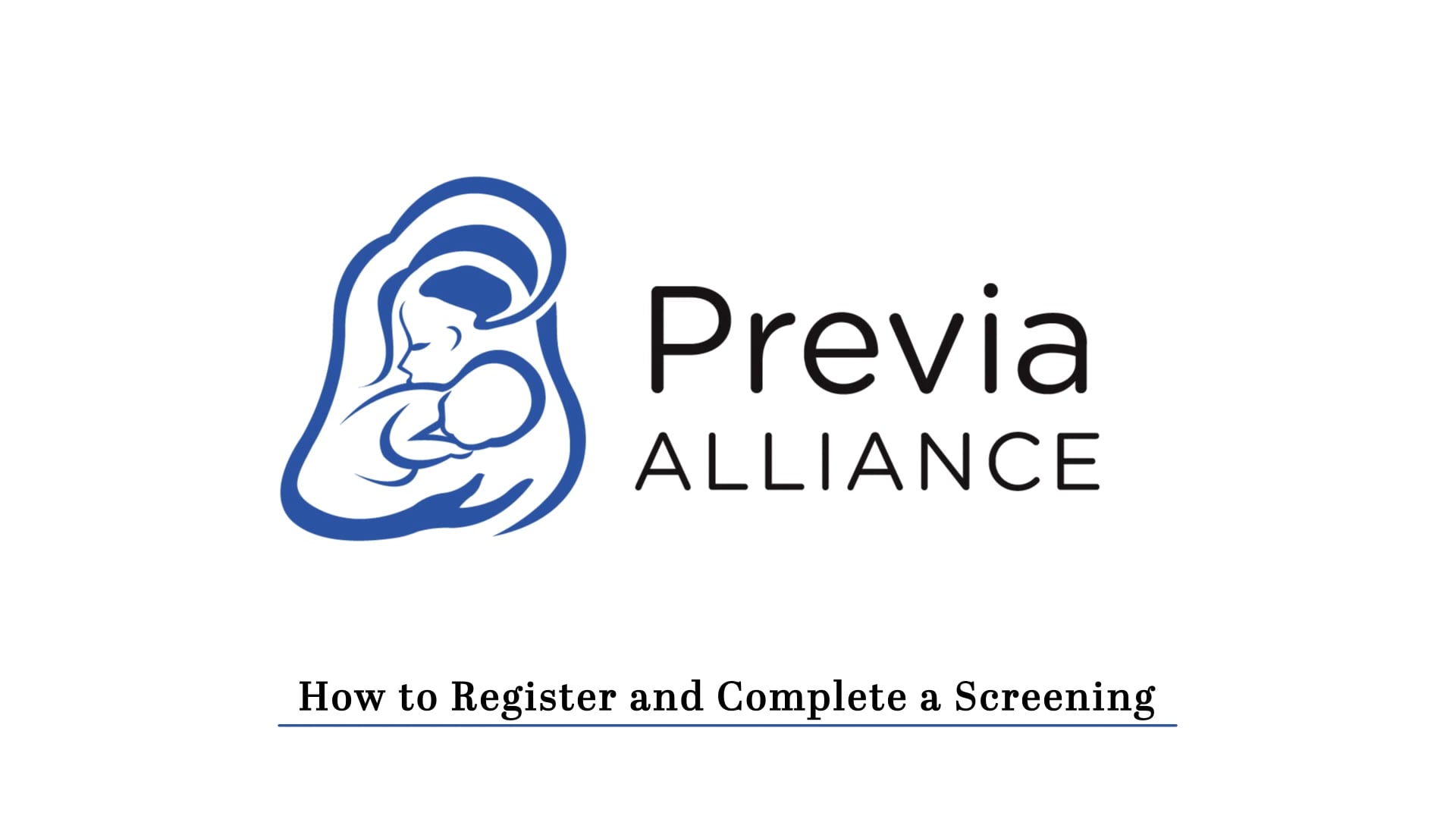Maternal Mental Health is in Crisis
Anxiety, intrusive thoughts, postpartum depression, stress, lack of health resources and information, and isolation have increased in pregnant women and new moms.
Previa Alliance helps women navigate their unique journey to motherhood by providing the resources and support necessary to protect and strengthen their mental health.
The Numbers:
75%
Of maternal mental health issues go untreated
1 in 3
pregnant women are affected by postpartum depression (PPD)
60%
of women don’t attend the 6-week follow-up appointment where PPD screenings occur
$14 Billion
Estimated $14 billion in economic burden of untreated perinatal mood and anxiety disorders (2017)
Consequences of Untreated Perinatal Mood & Anxiety Disorders (PMADs)
Mother
- Increased likelihood of suicide
- Increased risk of substance use abuse
- Increased risk of worse maternal health
- Higher work absenteeism
- Lower labor force participation
Child
- Increased risk of low birth weight or preterm birth
- Lower likelihood of being breastfed
- Increased risk Sudden Infant Death Syndrome
- Increased risk of behavioral/developmental disorders
- Increased likelihood of worse health (injuries, asthma, fewer preventive visits, obesity)
Family & Community
- Income loss
- Reduced economic output
- Increased use of public sector services
- Increased health care costs
What We Do
Previa Alliance is a maternal mental health company founded on personal experience with postpartum depression. Our primary goal is to educate women about maternal mental health, including providing regular depression screenings throughout pregnancy and the first year postpartum. We help connect women with counselors who provide the support and skills to address anxiety, stress, depression, and other concerns.
Our digital platform includes a dashboard where women can track their screening scores and access a vast video and podcast library on topics like mental health, newborn basics, lactation, pelvic floor therapy, parenting tips, and much more. They can also send in questions and request therapy with the click of a button!

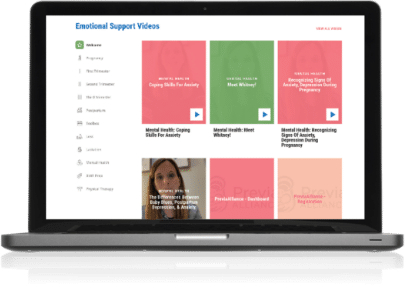
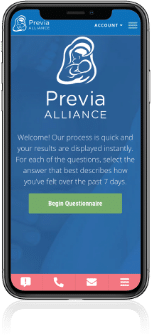
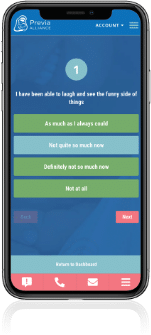
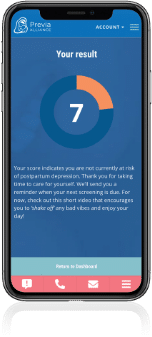
THE COST
To replace a new
mom who does not
return to work is
150% of
her salary.
her salary.
What We Offer Employers
- Increased productivity and job performance
- Improved return-to-work rate
- Lower healthcare costs for mother/child
- Lower absenteeism
- Decreased disability cost
- Improved employee morale
Rationale
Ernest and Young state that the cost to replace a new mom who does not return to work is 150% of her salary. Research supports that there is a $4 Return-on-Investment (ROI) for every $1 spent on mental health.
Supporting an employee’s (or family member’s) mental health during pregnancy and postpartum will lead to increased productivity, job performance, and absenteeism, as well as increased return to work post-maternity leave. Employers benefit when they demonstrate that mental health matters.
Why Employees Will Love
Previa Alliance
Previa Alliance provides an all-encompassing Employee Assistance Plan that provides one-of-a-kind pregnancy to one-year postpartum support.
Our Digital Platform Includes:
- Scientifically proven depression screening questionnaire with an instant report
- Video library created by experts in mental health, labor/delivery, newborn care, breastfeeding, and much more
- Online connection to therapists
- Community of mothers who share experience, wisdom, and encouragement
We Offer:
- A digital and telehealth solution that decreases healthcare access barriers, stigma, biases, and time constraints of traditional healthcare.
- Timely text/email notifications that share relevant and educational videos/ podcasts based on the employees’ current pregnancy/postpartum status.
- Confidential teletherapy with mental health experts specialized in maternal care.
- Scheduled postpartum depression screenings with personalized score reports.
- Exclusive educational content and support on topics such as Lactation, NICU Hospitalization, Miscarriage, Loss, and Fertility Issues.
Previa Alliance was created for moms by moms who are also maternal mental health experts. We support not only the mom but her entire support team with timely information and access to support and other resources.

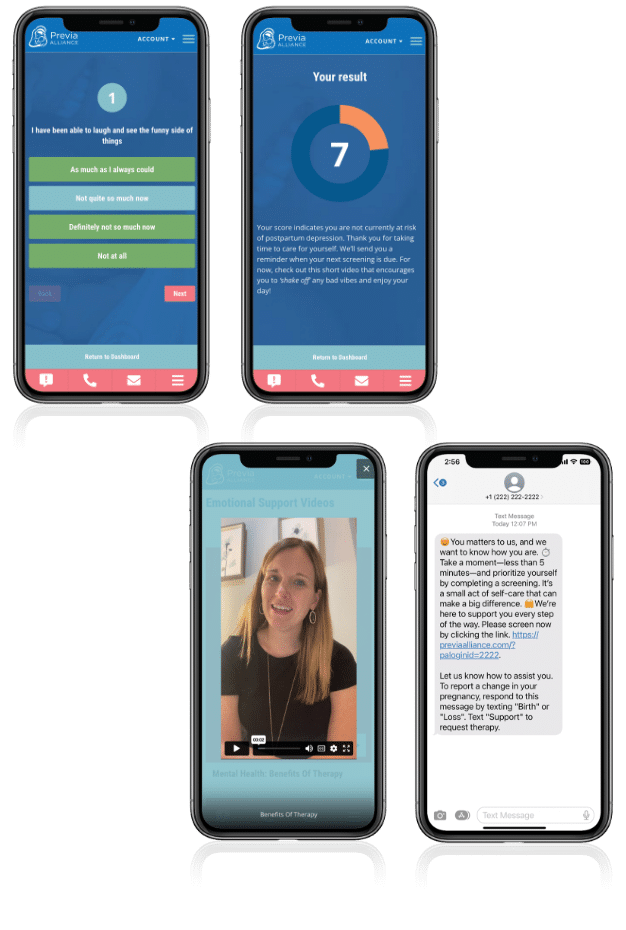
Perinatal and Postpartum Mental Health Facts
The 2023 Perinatal Behavioral Health Policy Summary States that behavioral health challenges deeply impact the perinatal population:
- Women are at the highest risk of developing a substance use disorder (SUD) during their reproductive years and are most at risk for overdose during the postpartum period.
- Up to 1 in 3 perinatal people will experience a mental health disorder, such as postpartum depression.
- The leading underlying cause of pregnancy-related deaths is behavioral health conditions, including suicide and overdose.
Postpartum depression (PPD) is the number one complication of childbirth, occurring in 1 in 3 women in the post-Covid era. Postpartum depression can present at any time in the first year after childbirth, often coinciding with a return to work by the mother. Anxiety, depression, and intrusive thinking can occur at any point during pregnancy.
Along with being most common, perinatal mood and anxiety disorders (PMADs) are the costliest complications of pregnancy. A 2017 research article published by the American Public Health Association stated that the cost of untreated PMADs is $14.2 billion, with employer health plans carrying most of the cost.
The American Psychological Association states that about half of the women who receive a PPD diagnosis experience symptoms during their pregnancy. It’s an important reason for the importance of reducing stigma around this condition.
Women avoid disclosing symptoms of anxiety/depression to their doctors out of fear of stigma, being judged as an “unfit” mother, or having their child removed from the home (Chew-Graham, Sharp, Chamberlain, Folkes, & Turner, 2009). Similarly, they worry that divulging their symptoms to employers could lead to repercussions at work, such as demotion or removal from projects and assignments (Selix & Goyal, 2015).
However, referral to a company’s Employee Assistance Program (EAP) can increase the chances of pregnant/postpartum women receiving proper screening, diagnosis, and psychiatric care as needed. Employers that support mental health see a return of $4 for every dollar invested in mental health treatment, according to new research released May 13, 2023, from the National Safety Council and NORC at the University of Chicago. When employees receive effective treatment for mental distress, organizations realize reduced total medical costs, increased productivity, lower absenteeism, and decreased disability costs.
Bottom Line: Women need to feel encouraged to seek help and treatment as soon as they notice symptoms and then be supported for doing so!
A 2017 research article published by the American Public Health Association stated that
the cost of untreated PMADs is $14.2 billion,
with employer health plans carrying
most of the cost.
most of the cost.
Examples of Educational Resources
